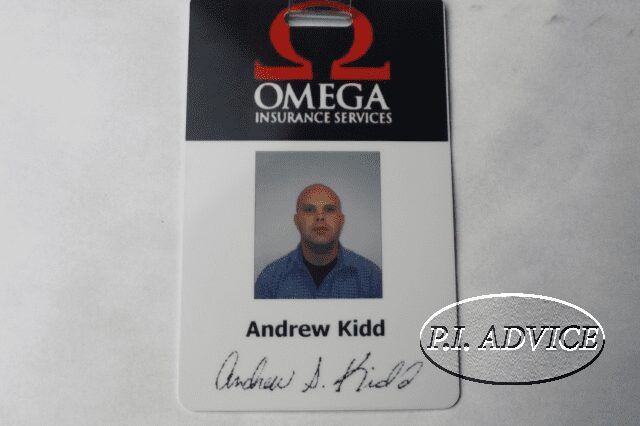Do private investigators have to identify themselves if asked? I saw this question asked and it reminded me of numerous movies where someone would ask an undercover police officer something like, “Are you a cop? You know you have to tell me if you’re a cop, right?”
Undercover police officers are not required to tell you they are a police officer. This would, of course, defeat the purpose of being undercover. Asking that question to them would be their kryptonite if they were required to tell you that they were a police officer if asked.
Here is more information on that if you are interested.
With that being said, I am not a lawyer or legal scholar by any means. I provide this information based on my own experiences over the years I have worked as a private investigator/insurance investigator.
So do private investigators have to identify themselves?
Private investigators generally speaking do not have to identify themselves to the general public if confronted.
If a private investigator is conducting a surveillance in a neighborhood and he/she is approached by a neighbor questioning their presence in a neighborhood, it might be very counterproductive to let them know you are a private investigator. In many occasions, private investigators use a pretext of some sort to justify their presence in a neighborhood.
Should a private investigator decide to identify himself to someone it is usually because that information may help him during a surveillance in a setup position or just to ease the minds of neighbors without hurting the integrity of their investigation.
On occasions when I have conducted interviews on behalf of insurance companies I have been asked for identification. This is to show that I indeed work for the investigation company working on behalf of the insurance company. In that case, I have to show my private investigation license. This sometimes causes concern to the person but I quickly explain that to do the type of work I am doing I am required to be licensed by the state. I explain that I am an information collector and usually the individual becomes less concerned and lowers their guard.

Do private investigators have to identify themselves to law enforcement?
I don’t know of a law where it specifically states a private investigator must identify themselves to law enforcement. If I come across it I will link to it in the future.
With that being said I would recommend identifying yourself as a private investigator if working as one when confronted by law enforcement. This will justify your presence in a neighborhood when conducting surveillance. I have been confronted by many police officers over the years and I am always forthcoming as to my reason for being in an area on surveillance (not the reason for the surveillance).
When working insurance or attorney assignments (when hired by the attorney) you should have client attorney privilege. This means you don’t have to divulge the purpose of your investigation or who you are investigating. In most cases, police officers won’t ask. If they do however I can’t stress enough that you need to be extremely respectful.
One thing I was told by one of my mentors is private investigators have a legal right to loiter. Loitering is basically the act of being in an area without an obvious purpose. Private investigators loiter during a surveillance but we are legally working and therefore have a reason to be in a public area (public streets/locations).
Conclusion on identifying yourself as a private investigator
I am not an attorney nor do I know about every law in every state or in every country. By no means is anything in this article legal advice and should not be interpreted as such.
Private investigators can use whether they identify themselves to the general public to their advantage depending on a given situation. Sometimes even public information is difficult to get and I have found that I meet less resistance after informing the gate keeper that I am a private investigator.
Always do what is legal for your respective state and I hope you found this information useful.
Andrew
Recent Posts
Hawaii is probably one of the most interesting states to work as a private investigator if you are not used to the culture or a native of the state. And if you are not a local, that is something...
How to become a private investigator in Georgia
